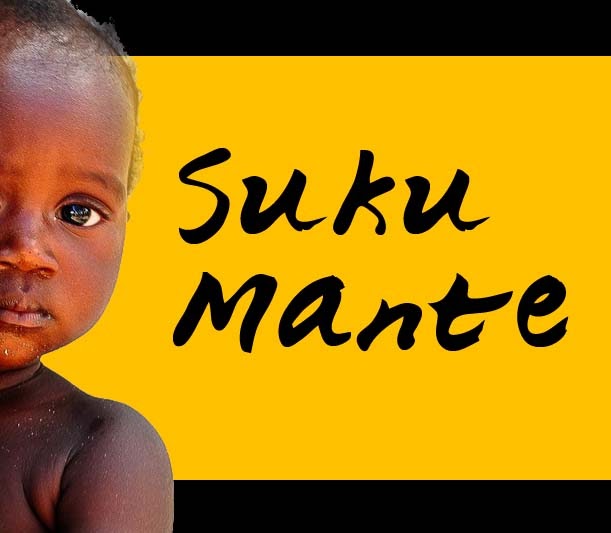Suku Mante is a term that resonates deeply within the heart of many communities, particularly in regions where cultural heritage plays a vital role in daily life. It captures the essence of tradition, identity, and the rich tapestry of stories that have been woven through generations. The phrase embodies not just a concept but a way of life; it is a celebration of the bonds that tie individuals to their ancestry and to one another. As we delve into the world of Suku Mante, we will explore its significance, origins, and the various aspects that make it a cornerstone of cultural expression.
In many cultures, Suku Mante represents more than just a word; it is an ideology that shapes behaviors, practices, and communal ties. The concept often involves rituals, ceremonies, and shared experiences that reinforce the social fabric of communities. Understanding Suku Mante is essential for anyone interested in cultural studies, anthropology, or simply the beauty of human connection. This article aims to serve as a comprehensive guide to the meaning, implications, and manifestations of Suku Mante.
As we embark on this exploration of Suku Mante, we will answer critical questions that illuminate its role in society. What does Suku Mante mean to different communities? How does it influence modern practices? And in what ways can we appreciate and participate in this cultural phenomenon? Join us as we navigate through the layers of meaning and significance that surround Suku Mante, offering insights that are both enlightening and thought-provoking.
What is the Historical Background of Suku Mante?
Suku Mante has roots that can be traced back to ancient traditions and practices, often linked to specific ethnic groups or geographic regions. It encompasses a variety of cultural expressions, including art, music, dance, and storytelling. These elements are not merely forms of entertainment but are integral to the preservation of history and identity within communities.
How is Suku Mante Celebrated Today?
In contemporary society, Suku Mante is celebrated through various festivals, gatherings, and community events. These celebrations often feature traditional attire, music, and dance, creating a vibrant atmosphere that fosters unity and joy among participants. Additionally, social media has played a pivotal role in promoting Suku Mante, allowing people to share their experiences and expand their cultural awareness.
Why is Suku Mante Important for Cultural Identity?
Suku Mante serves as a vital link to the past, providing individuals with a sense of belonging and identity. It fosters pride in one’s heritage and encourages younger generations to embrace their roots. By participating in Suku Mante activities, communities can pass down their values, beliefs, and traditions, ensuring their survival in an ever-changing world.
What Are the Key Elements of Suku Mante?
- Rituals: These are often performed during significant life events such as births, marriages, and funerals, reinforcing community bonds.
- Storytelling: Oral traditions play a crucial role in passing down knowledge and history, making Suku Mante a living narrative.
- Art and Craftsmanship: Traditional art forms, including weaving and pottery, reflect the aesthetics and values of a culture.
- Music and Dance: These expressive forms celebrate community spirit and are essential for Suku Mante celebrations.
How Can One Get Involved in Suku Mante Activities?
Getting involved in Suku Mante activities can be a rewarding experience. Here are some ways to engage:
- Attend local festivals and community gatherings.
- Participate in workshops that teach traditional crafts or dances.
- Volunteer for cultural organizations that promote Suku Mante.
- Connect with local community leaders or elders who can provide insights and guidance.
What Challenges Does Suku Mante Face in Modern Society?
Despite its importance, Suku Mante faces numerous challenges, particularly in the context of globalization and modernization. As younger generations become increasingly influenced by global culture, there is a risk of traditional practices being diluted or forgotten. It is crucial for communities to find ways to adapt and integrate their cultural heritage into contemporary life, ensuring the continued relevance of Suku Mante.
Can Suku Mante Foster Community Engagement?
Absolutely! Suku Mante has the potential to bring people together, fostering a sense of belonging and community. By participating in Suku Mante activities, individuals can build relationships, share experiences, and create a collective identity that strengthens social ties. Moreover, Suku Mante can serve as a platform for dialogue and understanding among diverse groups, promoting inclusivity and mutual respect.
Conclusion: The Enduring Legacy of Suku Mante
Suku Mante embodies the essence of cultural heritage, serving as a reminder of the importance of tradition in shaping our identities. As we navigate a rapidly changing world, it is vital to cherish and uphold the values and practices that Suku Mante represents. By actively participating in and promoting Suku Mante, we can ensure that future generations inherit a rich cultural legacy that continues to inspire and connect us all.
Exploring The Enigma Of Allure Mitchell: A Journey Through Talent And Charm
Unveiling The Journey Of Sydney Williams: A Multi-Talented Star
Unveiling The World Of Arcade DTI: A Gamers Paradise


